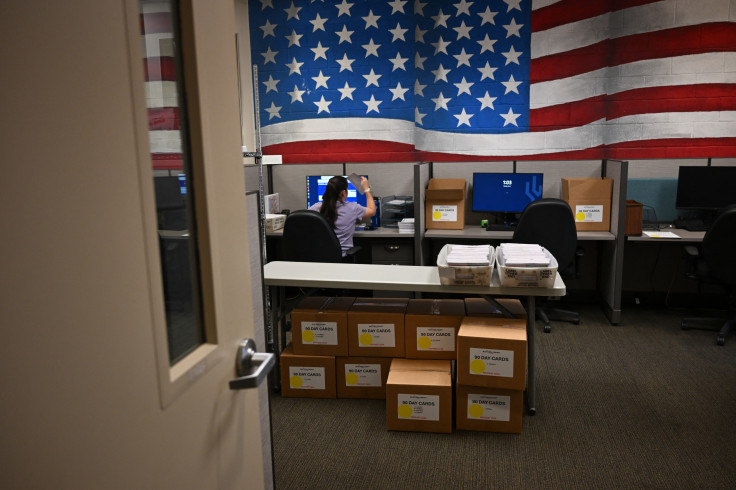
Polling centers across Arizona opened for early in-person voting on Wednesday, becoming the first battleground state to mark the start of the 2024 election. As they unfold, poll workers are facing harassment due to resurfaced conspiracy theories tied to the 2020 election.
The Secretary of State's Office reported that nearly 80% of participating Arizona voters submitted their ballots during the early voting period in the 2020 election when the state surprised the nation with a majority vote for President Joe Biden—the state's first Democratic victory in a presidential election since 1996.
Biden's victory, by a margin of 10,457 votes, ignited a misinformation campaign that has recently resurfaced, exposing poll workers to threats and harassment from those who believe they are involved in a conspiracy against Republicans.
Despite numerous investigations, including a Republican-led hand recount of 2.1 million ballots that reaffirmed Biden's victory, many continue to reject the findings.
Clint Hickman, former chairman of the Maricopa County Board of Supervisors, faced backlash after certifying the election results. A loyal Trump supporter, Hickman voted with the Republican majority to certify the election after finding no evidence of fraud. Since then, he has received numerous death threats, including a chilling voicemail threatening his family.
In Maricopa County, some schools have declined to serve as polling locations, citing harassment of workers and other safety concerns, according to the Associated Press.
A Brennan Center survey indicates that local election officials nationwide have taken steps since 2020 to protect election workers and infrastructure from threats and violence in 2024.
Measures include installing bullet-resistant glass at voting centers and conducting active shooter drills and de-escalation training for volunteers. These enhanced security protocols follow reports from a large number of election officials who have faced threats, abuse, or harassment while carrying out their duties.
Arizona's 15 counties are each required to open at least one site for early in-person voting, which runs until the Friday before the Nov. 5 general election. About a dozen voting stations will be operating across the Phoenix metro area, according to local authorities.
Both presidential campaigns are staking ground in Arizona. On Wednesday, the vice-presidential nominees will hold separate events in Tucson, followed by a Phoenix rally for Kamala Harris on Thursday and a rally for Donald Trump on Sunday in Prescott Valley.
Arizona had 4.1 million registered voters as of late July, according to the Secretary of State's Office. A recent poll by Arizona Family/High Ground indicates that voters in the swing state support abortion access and tougher border security measures—issues that both presidential campaigns are strategically addressing as Election Day approaches.
The scenario is a contrasting one for the two most important races in the state: president and senator. In the former, Donald Trump leads Kamala Harris by 1.3 percentage points, getting 48.1% of the support compared to Harris' 46.8%, according to FiveThirtyEight's polling average. The Senate race, in turn, is much more favorable to Democrats, as all polls show Republican Kari Lake trailing Democratic Rep. Ruben Gallego.
The latest survey, which was sponsored by the Republican Party, is among them. Conducted by SoCal Strategies, On Point Politics and Red Eagle Politics between October 5 and 7 among 735 likely voters, it shows Gallego with 51% of the support, compared to Lake's 39%.
The previous poll, carried out by RMG Research and the Napolitan Institute among 783 likely voters between September 30 and October 2, also features a double-digit margin: Gallego's 52% to Lake's 42%.
© 2024 Latin Times. All rights reserved. Do not reproduce without permission.









